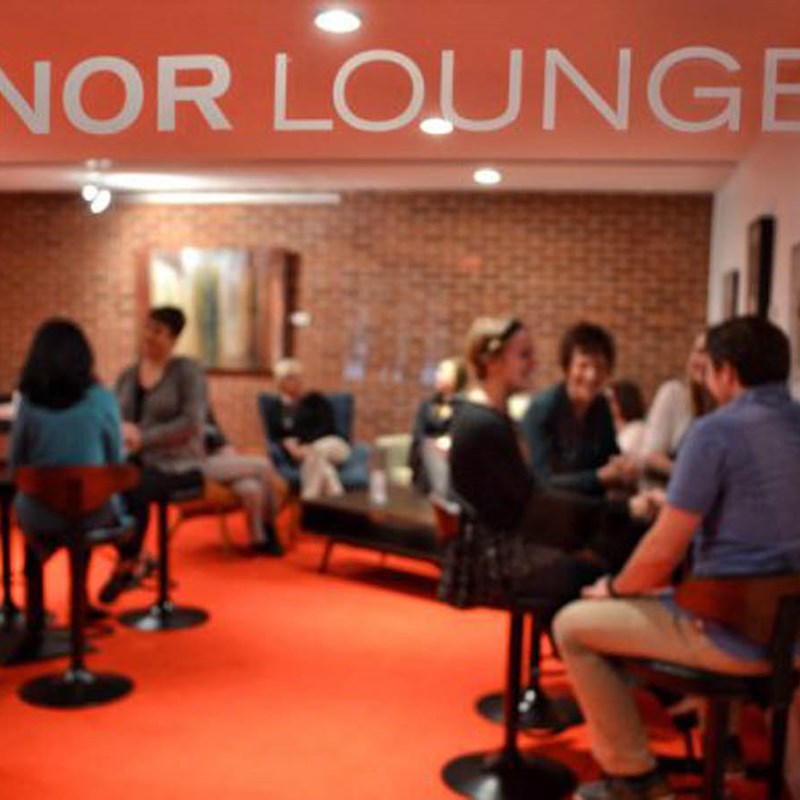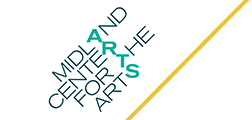Invest in the Great Lakes Bay Region's future of the arts.
Whether it's for Midland Symphony's award-winning performances, the artistic excellence of Center Stage Theatre, world-renowned exhibitions at the Alden B Dow Museum, historic preservation at Heritage Park or the link that brings all these art forms together — Midland Center for the Arts — you can help ensure the future of the arts in our community.
Legacy Society Benefits
- Invitation to the annual President's Luncheon
- Recognition in print materials
- Annual Report mailed to your home
- Additional benefits under development
Get inspired
Start your journey here by learning different planned giving options available to you.
Not everyone wants to commit to making a gift in their wills or estates. Some prefer the increased flexibility that a beneficiary designation provides by using:
- IRAs and retirement plans
- Life insurance policies
- Commercial annuities
It takes four simple steps to make this type of gift. Here's how to name the Midland Center for the Arts as a beneficiary:
- Contact your retirement plan administrator, insurance company, bank or financial institution for a change-of-beneficiary form.
- Decide what percentage (1 to 100) you would like us to receive and name us, along with the percentage you chose, on the beneficiary form.
- Return the completed form to your plan administrator, insurance company, bank or financial institution.
- Let us know about your generosity, so we can thank you!
A gift to Midland Center for the Arts in your will or trust can be unrestricted or directed to a specific purpose. It can indicate a specific amount or a percentage of your estate or trust. It’s relatively simple to make a legacy gift to Midland Center for the Arts using the following language:
General Support Bequests are legacies left to certain people or causes that come from the general value of the estate, and are made by designating a specific dollar amount, a particular asset or a fixed percentage of your estate to the cause of your choice without further restriction as to use.
"I give, devise, and bequeath to Midland Center for the Arts, located in Midland, Michigan (EIN: 38-6114020), the sum of $________(or ______% of my estate or a description of the specific asset), for the benefit of Midland Center for the Arts and its general purposes."
Restricted Gift Bequests are made when a particular item or property is bequeathed for a designated purpose. (i.e., instruments bequeathed to the local school district for use in music education; artwork left to a museum; or funds to be used to maintain gardens at a church.)
"I give, devise, and bequeath to Midland Center for the Arts, located in Midland, Michigan (EIN: 38-6114020), the sum of $_______ (or _____% of my estate or a description of a specific asset), to be used for the following purpose: (state the purpose). If at any time in the judgment of the trustees of Midland Center for the Arts it is impossible or impracticable to carry out exactly the designated purpose, they shall determine an alternative purpose closest to the designated purpose."
Residuary Bequests are made when you intend to leave the residue portion of your assets after bequests and other terms of the will have been satisfied. A Residuary Bequest can be for General Support or a Restricted Gift.
"All the rest, residue, and remainder of my estate, both real and personal, I devise to Midland Center for the Arts, located in Midland, Michigan (EIN: 38-6114020), for its general purposes [or, for the following purpose: (state the purpose)]."
Contingency Bequests allow you to leave a portion of your estate to a particular charity if your named beneficiary does not survive you.
"All the rest, residue and remainder of my estate, both real and personal, I devise to (name of beneficiary), if (she/he) survives me. If (name of beneficiary) does not survive me, I devise and bequeath my residuary estate to Midland Center for the Arts, located in Midland, Michigan (EIN: 38-6114020), for its general purposes [or, for the following purpose: (state the purpose)]."
A charitable gift annuity allows you to support Midland Center for the Arts while receiving fixed payments for life. This gift can enhance your financial security and provide a federal income tax charitable deduction.
Benefits of Charitable Gift Annuities- You get an immediate income stream for the rest of your life.
- You earn an immediate tax deduction, depending on your life expectancy and the amount of the annuity payout.
- There is a strong possibility that a portion of your annuity payout stream could be tax-free.
- You have some flexibility in what you donate beyond cash or stocks. In many cases, real estate or other personal property may qualify.
- You can curb your capital gains tax rate when you donate stocks, bonds or personal property.
With a Charitable Remainder Trust, you can receive income each year for the rest of your life from assets—cash, stock or real estate—you give to the trust. Your income can be either variable or a fixed amount.
After your lifetime, the remaining balance of your gift supports our mission. Some advantages to a CRT include:
- A partial charitable deduction, when you itemize
- Up-front capital gains tax relief
- Professional management of assets available
- Future estate tax relief
Charitable Remainder TrustEliminate Potential Taxes and Enjoy Reliable Payments
With a CRT, you can receive income each year for the rest of your life from assets—cash, stock or real estate—you give to the trust. Your income can be either variable or a fixed amount.
After your lifetime, the remaining balance of your gift supports our mission. Some advantages to a CRT include:
- A partial charitable deduction, when you itemize
- Up-front capital gains tax relief
- Professional management of assets available
- Future estate tax relief
The IRA Charitable Rollover provides an excellent opportunity to make a gift during your lifetime from an asset subject to multiple levels of taxation if it remained in your taxable estate. You must be 70 ½ or older at the time of the gift. The gift, up to $100,000, is transferred directly from a traditional IRA account by your IRA administrator to Midland Center for the Arts. The gift is not treated as income and subject to federal income taxes; is not considered a charitable deduction; and counts toward your required minimum distribution (RMD) for the year. Learn more.
Next Steps
- Contact Stephanie Kirkpatrick at 989.631.5930, ext. 1602
or kirkpatrick@midlandcenter.org for additional information on planned giving at Midland Center for the Arts. - Seek the advice of your financial or legal advisor.
- If you make a planned gift to Midland Center for the Arts through your estate, please use our legal name and federal tax ID.
Legal Name: Midland Center for the Arts
Address: 1801 W. St. Andrews, Midland, Michigan
Federal Tax ID Number: 38-6114020
More to Know

Corporate Partners

Museum Support


